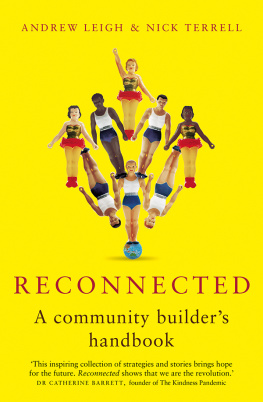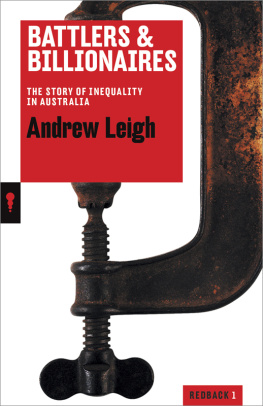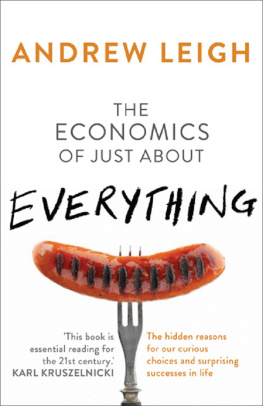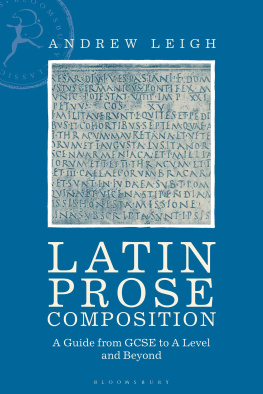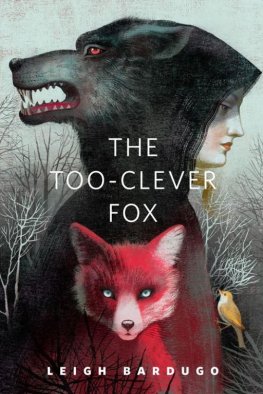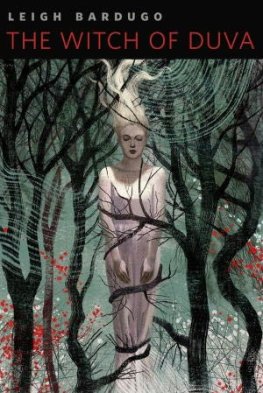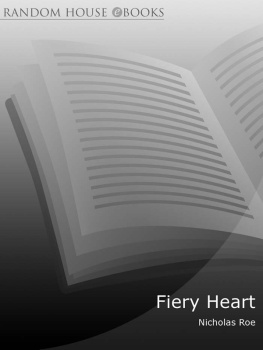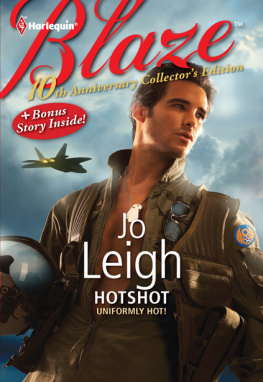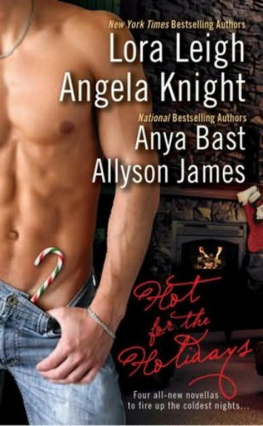Andrew Leigh - Reconnected
Here you can read online Andrew Leigh - Reconnected full text of the book (entire story) in english for free. Download pdf and epub, get meaning, cover and reviews about this ebook. publisher: Schwartz Books Pty. Ltd., genre: Politics. Description of the work, (preface) as well as reviews are available. Best literature library LitArk.com created for fans of good reading and offers a wide selection of genres:
Romance novel
Science fiction
Adventure
Detective
Science
History
Home and family
Prose
Art
Politics
Computer
Non-fiction
Religion
Business
Children
Humor
Choose a favorite category and find really read worthwhile books. Enjoy immersion in the world of imagination, feel the emotions of the characters or learn something new for yourself, make an fascinating discovery.
- Book:Reconnected
- Author:
- Publisher:Schwartz Books Pty. Ltd.
- Genre:
- Rating:4 / 5
- Favourites:Add to favourites
- Your mark:
- 80
- 1
- 2
- 3
- 4
- 5
Reconnected: summary, description and annotation
We offer to read an annotation, description, summary or preface (depends on what the author of the book "Reconnected" wrote himself). If you haven't found the necessary information about the book — write in the comments, we will try to find it.
Reconnected — read online for free the complete book (whole text) full work
Below is the text of the book, divided by pages. System saving the place of the last page read, allows you to conveniently read the book "Reconnected" online for free, without having to search again every time where you left off. Put a bookmark, and you can go to the page where you finished reading at any time.
Font size:
Interval:
Bookmark:
ACKNOWLEDGEMENTS
O ur thanks to those parliamentarians and former parliamentarians who co-hosted Reconnected forums with us, including Anne Aly, Terri Butler, Sharon Claydon, Julie Collins, Milton Dick, Don Farrell, Patrick Gorman, Luke Gosling, Ross Hart, Julian Hill, Justine Keay, Matt Keogh, Peter Khalil, Susan Lamb, Sue Lines, Emma McBride, Brian Mitchell, Claire Moore, Julie Owens, Graham Perrett, Tanya Plibersek, Louise Pratt, Amanda Rishworth and Tony Zappia. We are grateful to Martin OShannessy, who added questions on friends and neighbours to a 2018 OmniPoll survey, and to Gary Morgan and Julian McCrann, who provided us with Roy Morgan data on sporting participation for 2001 to 2019. Thanks to the community builders and experts who shared their insights and stories, including Michael Albert, Jack Manning Bancroft, David Barda, Catherine Barrett, Elaine Bensted, Michael Bernard, Nicholas Biddle, Jess Bloomfield, Danae Bosler, Matthew Boyd, Rob Buckingham, Mark Campbell, Wesa Chau, Brad Chilcott, Carla Clarence, Libby Coker, Tim Costello, Matt Crawley, Fleur Creed, Peter Dawson, Bev Debrincat, Robert Dixon, Anna Donaldson, John Dryzek, Naomi Edwards, Karyn Freeman, Tracy Gillard, Ellie Gillet, Alice Glenn, Daniel Gobena, Liam Golding, Murray Goot, Pete Greenwood, Nathan Hagarty, Leigh Hambly, Bruce Hammond, Phil Harrison, Luke Hilakari, Kirsten Holmes, Leigh Hubbard, Kerry Jones, Astrid Jorgensen, Lavanya Kala, Shankar Kasynathan, Andrew Katay, Peter Kenyon, Catherine King, Sebastian Kocar, Adam McKay, Patricia Lauria, Victor Lee, Barbara Leigh, Tim Leigh, Nick Maisey, Nic Marchesi, Estelle Marine, Leigh McLaughlin, Barbara Mifsud, Liz Migliorini, Julie Molloy, Matt Napier, Clayton Neil, Tim Oberg, Rob Oerlemans, Evelyn OLoughlin, Toby Ord, Jan Ormerod, Karlya Parnell, Alison Parsons, Lucas Patchett, Suzanna Pawley, Nick Pearce, Matt Pfahlert, Robert Putnam, Liz Rhodes, Tonia Ries, Genevieve Roberts, Wendy Russell, Matt Ryan, Saara Sabbagh, Bec Scott, Krystian Seibert, Marlee Silva, Marielle Smith, Jonathan Srikanthan, Anne Stanley, Rhiannon Stephens, Ted Sussex, Melanie Tate, Fiona Telford, Neha Teli, Jeremy Tobias, Michael Traill, Brian Triglone, Maia Tua-Davidson, Iain Walker, Lisa Warton, Grant Westthrop, Robert Wiblin, Sarah Wickham, Craig Wilkins, Sonia Williams, Juliette Wright, Sarah Xu and all their collaborators. We are grateful to the splendid team at Black Inc., including Lauren Carta, Marilyn de Castro, Chris Feik, Kirstie Innes-Will and Kate Nash. Andrew dedicates this book to his four beloved community-builders: Gweneth, Sebastian, Theodore and Zachary. Nick dedicates this book to Penny and Edie, who make friends wherever they go.

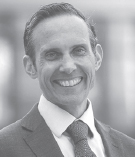
Andrew Leigh is the federal member for Fenner. Before being elected in 2010, he was a professor of economics at the Australian National University. His books include Battlers and Billionaires, The Luck of Politics and Randomistas.
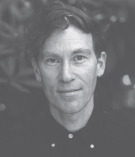
Nick Terrell is an adviser to Andrew Leigh MP. He has worked closely with Australias charity and non-profit sector to protect the voice of community organisations and promote the value of their contribution to Australian communities.
SOCIAL CAPITAL
I magine your ideal community. One in which youve got plenty of friends, and plenty of time to spend with them. A society where your street is lively and safe, and neighbours are happy to mind your dog when youre on holiday. Local cafs where people know your name. Creative communities telling Australian stories. More local sporting teams than you can shake a cricket stump at. The kind of politics where people work together to solve local problems, rather than bickering about leaders, slurs and slip-ups.
Suppose that this sense of common purpose extended to the workplace, so that people felt fulfilled in their jobs, respected by their co-workers and valued by their managers. Imagine employment thats flexible by default, so the boss doesnt scoff when you say youd like to work a four-day week so you can care for a relative or just practise your favourite hobby.
Picture, too, an Australia in which friendships comfortably bridge traditional divides, in which everyone shares a pride in the nations 60,000-year Indigenous heritage, volunteers to help those who are down on their luck and takes the time to check in on neighbours whove newly arrived from overseas. Envisage the strength that such a connected society has when adversity strikes: volunteer fire brigades at the ready, foodbanks well stocked, community centres prepared.
Its a world wed all like to live in but too often the reality of modern life is rushing past your neighbours (who you really must introduce yourself to one day), getting stuck in traffic, rolling your eyes at the latest social media outrage and wondering how anyone ever finds time to catch up with friends. In Reconnected, we look at how Australia has become more disconnected and how together we can turn it around.
Living in a more connected way isnt just pleasurable, it enables us to tackle larger challenges. Problems such as climate change, inequality, inactivity and loneliness threaten our future. Solving them will require collective action. In all of human history, theres few instances in which a crisis was resolved by one person acting alone.
The missing pieces of Australias community-building puzzle are hiding in plain sight. Australia is fortunate to have thousands of inspirational social entrepreneurs in our midst. From sporty types organising weekend fun runs to altruists providing laundry services to homeless people, social capitalists are helping to grow a more connected community. Better yet, many are deploying tactics that can be replicated elsewhere. Identifying these common threads is the purpose of our book.
But first, theres a core concept we need to understand: social capital.

Four hundred and fifty kilometres south of New Zealands South Island lies Auckland Island, a cold and hilly landmass. For most of human history, the island has been uninhabited. Then in 1864 something unusual happened.wrecked at opposite ends of the island: the Invercauld on the northwest, and the Grafton on the south-east.
The Invercauld was under the command of Captain George Dalgarno, who when disaster struck seems to have been focused only on his own survival. Dalgarnos attitude of every man for himself saw six of the twenty-four sailors under him perish in the shipwreck, including a sick young crewman. In the coming weeks, the survivors roamed the island, repeatedly abandoning those who were ill to die on their own. When they caught wild pigs, each man ate as much as he could. One night, William Hervey threw another of the shipwrecked sailors, Fred Hawser, out of their stick shelter on the basis that he was being a nuisance. Hawser died. A few days later it was discovered that Hervey had been eating some of Hawser. A year after the shipwreck, a rescue ship arrived. Only three of the Invercaulds original twenty-five crew survived.
On the other side of the island, things unfolded differently. Commanding the Grafton was Captain Thomas Musgrave. When his ship hit a rocky beach and foundered, Musgrave ordered his men to stay aboard and wait until daylight. They then took ashore food, a gun and a dinghy, and even managed to transfer a critically ill crewmate. Over the coming months, the five
Font size:
Interval:
Bookmark:
Similar books «Reconnected»
Look at similar books to Reconnected. We have selected literature similar in name and meaning in the hope of providing readers with more options to find new, interesting, not yet read works.
Discussion, reviews of the book Reconnected and just readers' own opinions. Leave your comments, write what you think about the work, its meaning or the main characters. Specify what exactly you liked and what you didn't like, and why you think so.

